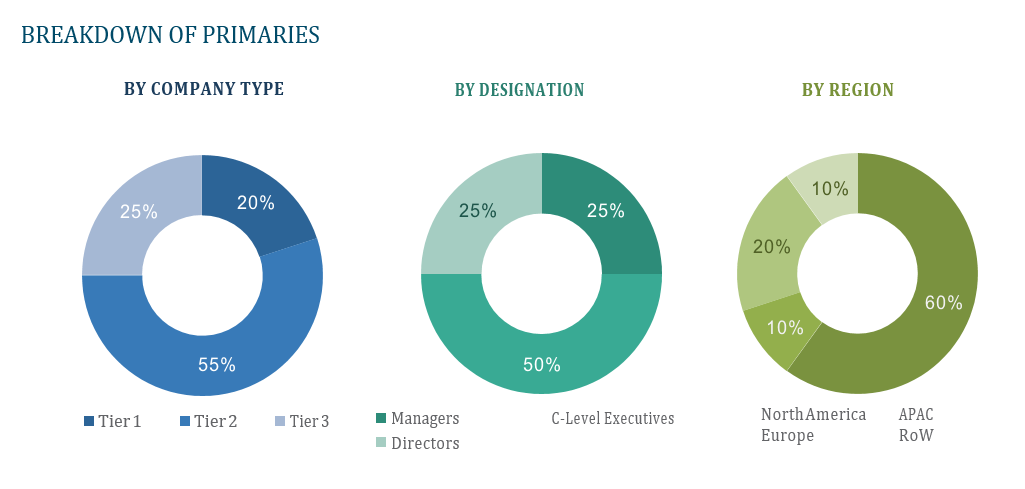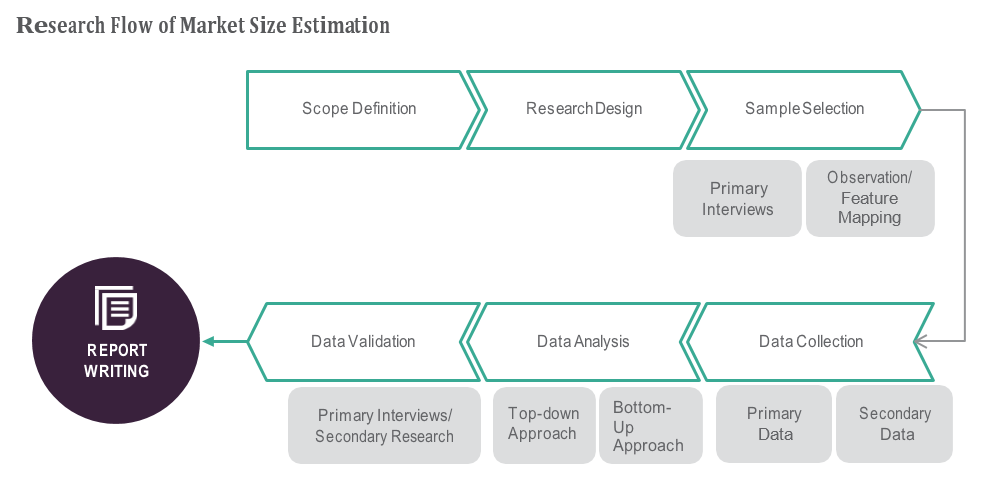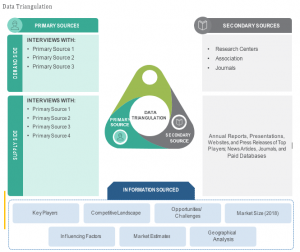OVERVIEW
The Cloud Migration Service Market is currently valued at USD 11.2 billion in 2024 and will be growing at a CAGR of 23.3% over the forecast period to reach an estimated USD 29.2 billion in revenue in 2029. The cloud migration service market encompasses services and solutions designed to facilitate the relocation of various IT resources, including applications, databases, and infrastructure, from on-premises data centers to cloud environments or from one cloud platform to another. This market has seen significant growth due to the increasing adoption of cloud computing by businesses seeking scalability, flexibility, and cost efficiency. Cloud migration services include consulting, implementation, and management, covering aspects like planning, workload migration, security, and compliance. Providers in this market offer expertise in different cloud models (public, private, and hybrid) and platforms (such as AWS, Azure, and Google Cloud), catering to the diverse needs of organizations aiming to optimize their IT operations and leverage the benefits of cloud technology.
The cloud migration services market is primarily driven by several key factors. Firstly, the increasing demand for scalability and flexibility in IT operations encourages organizations to move towards cloud solutions. The need for cost reduction and improved operational efficiency is another significant driver, as cloud platforms offer pay-as-you-go models that can significantly lower capital expenditure and operational costs. Additionally, the rapid advancement in cloud technology and the growing emphasis on digital transformation strategies push businesses to adopt cloud services to stay competitive. The desire for enhanced collaboration and remote work capabilities, especially highlighted by the global shift towards remote working environments, further accelerates cloud adoption. Finally, concerns over data security and regulatory compliance are being addressed by cloud service providers, increasing trust and adoption rates among businesses with stringent data handling requirements.
Table of Content
Market Dynamics
Drivers:
The cloud migration services market is primarily driven by several key factors. Firstly, the increasing demand for scalability and flexibility in IT operations encourages organizations to move towards cloud solutions. The need for cost reduction and improved operational efficiency is another significant driver, as cloud platforms offer pay-as-you-go models that can significantly lower capital expenditure and operational costs. Additionally, the rapid advancement in cloud technology and the growing emphasis on digital transformation strategies push businesses to adopt cloud services to stay competitive. The desire for enhanced collaboration and remote work capabilities, especially highlighted by the global shift towards remote working environments, further accelerates cloud adoption. Finally, concerns over data security and regulatory compliance are being addressed by cloud service providers, increasing trust and adoption rates among businesses with stringent data handling requirements.
Key Offering:
The key offerings in the cloud migration services market encompass a comprehensive suite of solutions tailored to facilitate the seamless transition of business operations to the cloud. These services typically include assessment and strategy planning, where consultants evaluate a company’s current infrastructure and determine the most efficient path to the cloud. Cloud migration offerings also feature application and data migration services, ensuring that essential business applications and data are transferred securely and with minimal downtime. Post-migration support and optimization services are crucial, aiming to fine-tune the cloud environment for optimal performance and cost efficiency. Additionally, cloud integration services are offered to ensure that migrated applications and data work seamlessly with existing on-premises systems or other cloud services. Security and compliance services are integral, providing businesses with the assurance that their cloud environments adhere to relevant regulations and industry standards, protecting sensitive data and transactions. These offerings collectively enable businesses to leverage the full potential of cloud computing while minimizing risks and disruptions.
Restraints :
The expansion of the cloud migration services market faces several restraints that can slow down adoption rates among businesses. One significant challenge is the complexity and risk associated with migrating critical data and applications to the cloud, which can lead to concerns over potential downtime, data loss, or breaches during the transition. Security and compliance issues also act as barriers, especially for industries that handle sensitive information, where businesses must navigate stringent regulatory requirements. The perceived loss of control over IT resources when moving to a cloud environment can deter companies accustomed to on-premises infrastructures. Additionally, the costs associated with migration, although often offset by long-term savings, can initially be a barrier for small and medium-sized enterprises (SMEs) with limited budgets. Finally, a lack of expertise and resources to plan, execute, and manage cloud migration projects effectively can hinder organizations from making the leap, despite the availability of external service providers. These challenges necessitate thoughtful consideration and strategic planning to ensure successful cloud adoption.
Regional Information:
North America, particularly the United States, leads in adoption due to its advanced IT infrastructure, presence of major cloud service providers, and a strong focus on innovation and digital transformation. Europe follows closely, with a strong emphasis on data protection and privacy, guided by regulations such as the General Data Protection Regulation (GDPR), which impacts cloud strategies. The Asia-Pacific region shows rapid growth, driven by increasing digitalization, government initiatives promoting cloud adoption, and the rising number of SMEs. This region benefits from a burgeoning tech-savvy population and investments in cloud infrastructure. Latin America and the Middle East & Africa are emerging markets for cloud migration, characterized by growing IT sectors and digital government initiatives. However, these regions face challenges such as limited IT infrastructure and cybersecurity concerns. Overall, while developed regions lead in cloud migration services due to technological and regulatory sophistication, emerging regions present growth opportunities due to digital transformation efforts and increasing cloud readiness.
Recent Developments:
• In November 2023, Infosys entered into a three-year strategic collaboration agreement with AWS to accelerate cloud transformation for financial institutions across Europe, the middle east, and Africa (EMEA). this collaboration, under Infosys cobalt, combines AWS’s cloud-native innovation with info sys’s domain knowledge, delivering specialized cloud migration and modernization services. the aim is to provide transformative cloud solutions, leveraging generative AI and data analytics, industry-specific use cases, and shared toolsets for accelerated adoption and compliance.
• In September 2023, Oracle and Microsoft announced Oracle Database at Azure, which gives customers direct access to Oracle database services running on Oracle Cloud Infrastructure (OCI) and deployed in Microsoft Azure datacenters.
Key Players:
Frequently Asked Questions
1) What is the projected market value of the Cloud Migration Service Market?
– The Cloud Migration Service Market is expected to reach an estimated value of USD 29.2 billion in revenue by 2029.
2) What is the estimated CAGR of the Cloud Migration Service Market over the 2024 to 2029 forecast period?
– The CAGR is estimated to be 23.3% for the Cloud Migration Service Market over the 2024 to 2029.
3) Who are the key players in the Cloud Migration Service Market?
– Amazon Web Services, Inc. (AWS), Microsoft Corporation, Google LLC, IBM Corporation, Cisco Systems, Inc., VMware, Inc., Rackspace Technology, Inc., DXC Technology, Accenture plc, Infosys Limited.
4) What are the drivers for the Cloud Migration Service Market?
– The cloud migration services market is driven by increasing IT scalability, cost reduction, digital transformation strategies, enhanced collaboration, remote work, and data security concerns. Companies are adopting cloud solutions to stay competitive, while providers address concerns over data security and regulatory compliance, boosting trust and adoption rates among businesses with stringent data handling requirements.
5) What are the restraints and challenges in the Cloud Migration Service Market?
– The cloud migration services market faces challenges such as complexity, risk, security, compliance, perceived loss of control, initial costs, and lack of expertise. These factors can slow adoption rates among businesses, especially in industries handling sensitive information. Strategic planning and consideration are crucial to ensure successful cloud adoption, despite the availability of external service providers.
6) What are the key applications and offerings of the Cloud Migration Service Market?
– The cloud migration services market offers a range of solutions for businesses transitioning to the cloud. These include assessment and strategy planning, application and data migration, post-migration support, optimization, cloud integration, and security and compliance services. These services ensure secure, efficient, and minimal downtime transitions, maximizing the potential of cloud computing while minimizing risks..
7) Which region is expected to drive the market for the forecast period?
– North America is expected to have the highest market growth from 2024 to 2029
Why Choose Us?
Insights into Market Trends: Global Market Studies reports provide valuable insights into market trends, including market size, segmentation, growth drivers, and market dynamics. This information helps clients make strategic decisions, such as product development, market positioning, and marketing strategies.
Competitor Analysis: Our reports provide detailed information about competitors, including their market share, product offerings, pricing, and competitive strategies. This data can be used to inform competitive strategies and to identify opportunities for growth and expansion.
Industry Forecasts: Our reports provide industry forecasts, which will inform your business strategies, such as investment decisions, production planning, and workforce planning. These forecasts can help you to prepare for future trends and to take advantage of growth opportunities.
Access to Industry Experts: Our solutions include contributions from industry experts, including analysts, consultants, and subject matter experts. This access to expert insights can be valuable for you to understand the market.
Time and Cost Savings: Our team at Global Market Studies can save you time and reduce the cost of conducting market research by providing comprehensive and up-to-date information in a single report, avoiding the need for additional market research efforts.









